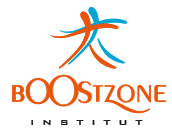In prior notes, we have tried to show that the SMART way of managing is out and a more SENSIBLE one is in: Sustainable, Ethical, Network-supported, Small, Imaginative, Beautiful, Long-term, Excellence-driven. The important, yet, is to have ways of helping companies and people move towards this new leadership paradigm. As all is rooted in company “culture and values” as well as “employee behaviors” that come out of them, it can be useful to start with a cultural audit on inherent values: financial, goodwill, people, client… and corporate social responsibility! Details:
• Financial: growth, profit, long-term orientation, confidentiality or transparency
• Goodwill: Trademark, image and history, excellence, uniqueness, leadership charisma
• People: family (respect and loyalty), passion, benevolence, well-being but requirements
• Client: quality, service, innovation, conformity, listening and interest, attention
• Corporate Social Responsibility: moral values, social service for employees, gift giving
A full cultural audit can take the form of a company-wide questionnaire managed electronically or, even better, a series of ‘one-to-one’ meetings with a selected number of employees representative of the organization as a whole; the interviewers have, the, to be from the outside and unbiased. They work from an established questionnaire that is developed in accordance with the established culture, yet giving employees the ability to think pro-actively at their own perception of what is required.
An analysis is performed from results that are synthesized by experts; the management team can then decide whether the current value system and corporate culture are appropriate in view of the changing environment and desired outcome. This can take the form of a seminar to extract a new mission statement and/or company motto that shall become a guide to any decision going forward; it then becomes a charter for management exemplarity going forward. It also shows the strong desire of Top Management to listen to employees and develop empathy as these two qualities are becoming more and more important in our day and age to make people feel happier at the office. But it is also a means to educate them to new values and make sure that they partake in their usage, through their behaviors.
On the training side, technical or financial seminars have been the drivers of recent decades but we have seen, more recently, a broader need emerge, that of “soft skills” which typically cover the human side of the corporation. Beyond the typical selling, speaking, etc. two areas of interest have come out of the recent past: personal development and employee relations (not just manager to employee but altogether), not to mention stress management which typically addresses both of these. An innovative way of presenting these would be to develop a series of training in three areas: connecting individualities, human respect and organization models, and self development. But will companies be willing to invest all the way in this field, preferring to leave it to individuals to manage on their own?


